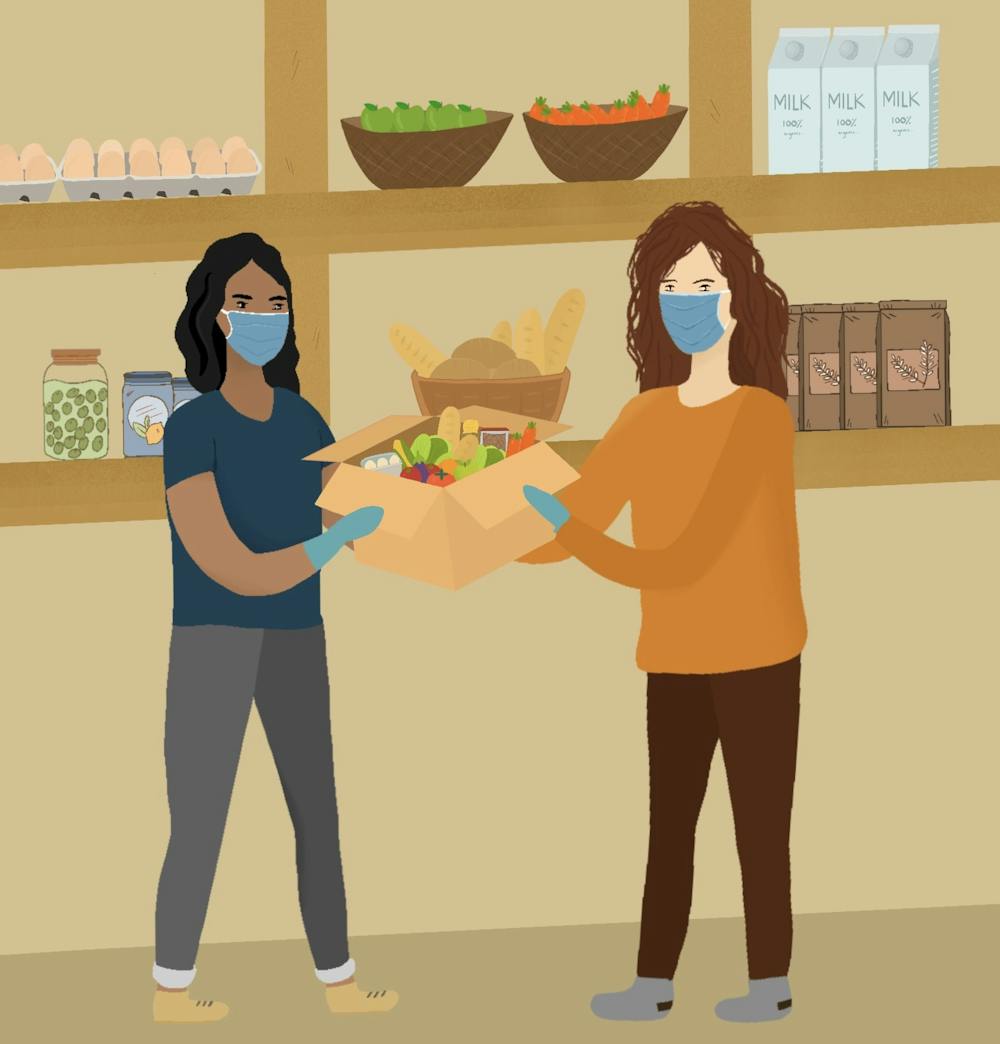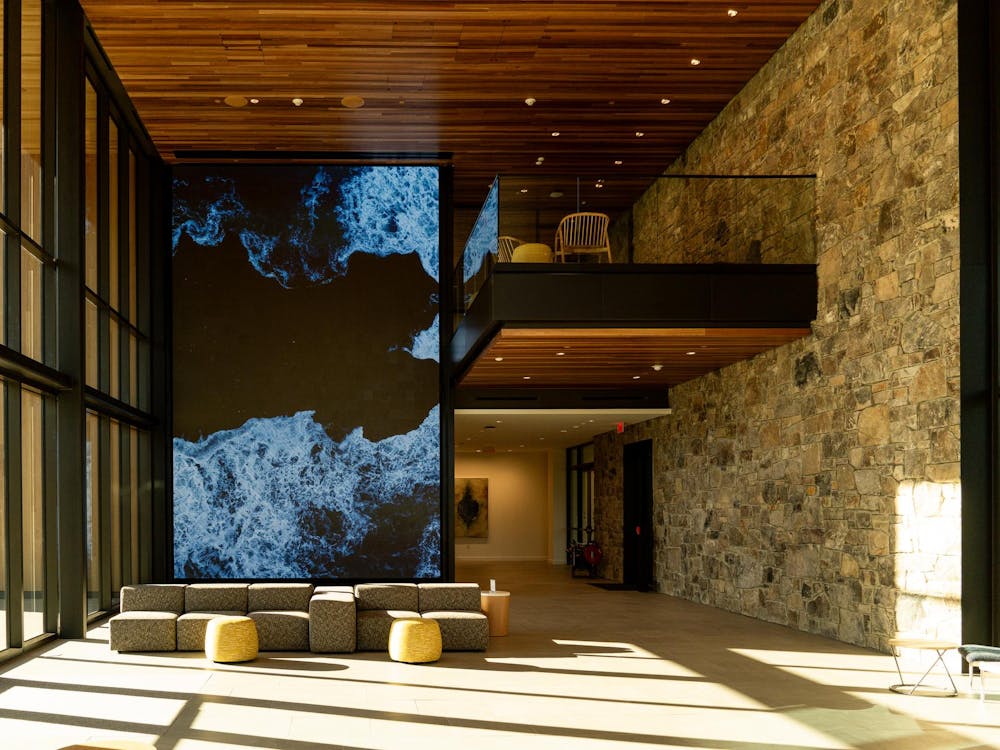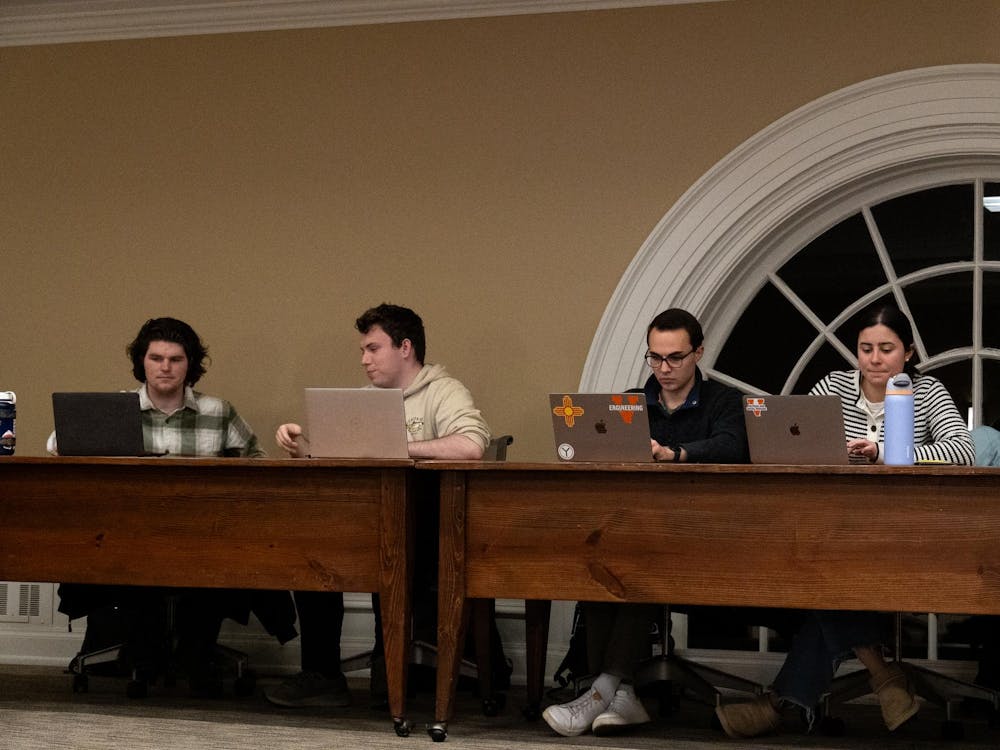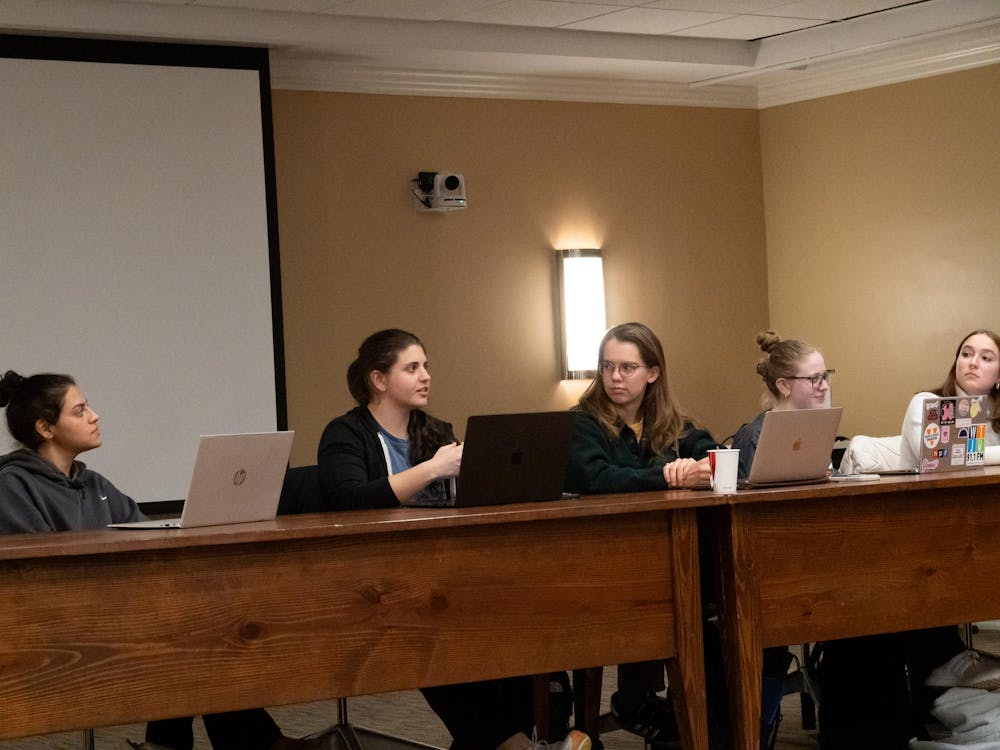Since University operations transitioned online in March 2020 due to the COVID-19 pandemic, students and community members alike have faced food insecurity, financial stress and mental health challenges. Resources like the Community Food Pantry, Counseling and Psychological Services, Maxine Platzer Lynn Women’s Center, U.Va. Mutual Aid, the Student Disability Access Center and Student Legal Services are just some of the resources available to individuals affiliated with the University for advice, funding and accommodations.
U.Va. Mutual Aid met its goal of $5,000 on Tuesday and accepted donations and funding requests through Thursday. The fund is still accepting donations and will begin taking funding requests when it meets its next $5,000 goal. Despite the University-wide lockdown announced Tuesday, the community food pantry will also remain open from 7 a.m. to 10 p.m. Monday through Saturday and 8 a.m. to 10 p.m. on Sundays.
CARES Act Funding
Students can apply for emergency CARES Act funding to supplement food, textbook, housing, educational technology, transportation, coronavirus-related healthcare and childcare costs. The CARES Act is a $2.2 trillion dollar economic stimulus bill that was passed in March to provide aid to American small businesses, families and workers. As of Dec. 31, the University distributed all of the student-related funds it received from the act — nearly six million dollars were given to 3,226 students.
According to the University’s CARES Act funding website, students must be currently enrolled in a graduate or undergraduate program and awards are prioritized based on student type and financial need level.
According to University spokesperson Wes Hester and Student Financial Services, legislation to distribute an additional $5,858,355 to students was approved in late December. Since Jan. 4, $1.3 million dollars of this new grant have been allocated to students as emergency funds.
Nearly one million dollars in emergency grants were given to students who do not qualify for federal funding. Students can continue to apply for grants here until the end of the semester or until funds are depleted, whichever comes first.
U.Va. Community Food Pantry
As with many other areas of the state and country, the University community and Charlottesville have seen a rise in food insecurity since the pandemic’s onset. According to Shelby Gibson, program coordinator case manager for the Office of the Dean of Students, a third of a sample of representative University students reported food insecurity March 2020 — nearly a 10 percent increase from the previous year. The U.Va. Community Food Pantry, run by Student Council and located in Newcomb Hall, has served as a resource for any University-affiliated students and staff to receive food.
Jennifer Bobowski, the pantry’s executive director and third-year McIntire student, said the demand for the pantry’s food has risen sharply this school year compared to past years. The pantry used to have sufficient amounts of food when restocked every other week, but it is now restocked weekly and most food is taken within days after restocks.
To match the increased demand for food as a result of financial instability from the pandemic, Bobowski said she would like to see more funding and University involvement. Bobowski said the pantry needs to be restocked more than once a week to meet demand.
“It just feels like our demand keeps increasing and we need more financial support,” Bobowski said. “[The pantry is] a student-run organization. However, I believe we’ve gotten to the point where we need more U.Va. staff involvement in order to match this increased need.”
The majority of the pantry’s funding comes from the U.Va. Parents Fund. This semester, the pantry applied for and received a $4,000 grant from the fund, compared to a grant of $2,300 in the fall.
Individuals can make monetary donations here to the pantry. Donations of food and hygiene items can also be made by contacting the pantry’s operations manager Tyler Hendricks at thh4yj@virginia.edu.
Counseling and Psychological Services
Counseling and Psychological Services at the University provides mental health counseling and resources to University students. CAPS transitioned its services online last spring and has expanded several of its resources during the pandemic.
“We expanded our Let’s Talk program, which is an opportunity for students to speak with a CAPS therapist about non-emergency concerns in a confidential, virtual space,” CAPS director Nicole Ruzek said in an email to The Cavalier Daily. “These consultations are free for all U.Va. students, whether they are living in Charlottesville or learning remotely in or out of state.”
CAPS has also initiated “Support Circles” for Black, indigenous and people of color students, which allow identifying students to connect weekly with each other, as well as support groups for students experiencing COVID-19 related stress.
Though the pandemic has created more stress among students and the demand for mental health services has increased globally, CAPS has seen a decrease in the number of students accessing its services compared to previous semesters.
Ruzek said a decrease in counseling center usage at universities has also been occurring across the country and that the trend at the University could be attributed to several possible reasons.
“Some students did not return to their campus and as a result may have sought care in their local community,” Ruzek said. “Some students remained out of state, making it impossible to provide care (legally) across state lines … some students did not have a private space to be able to engage in telehealth.”
Despite a decreased use in CAPS services, Ruzek said the program continues to remain “busy,” and 2.6 new counselors, as well as 1 nurse practitioner, have been hired over the past few months.
CAPS also offers emergency consultation services, available 24 hours a day, seven days a week, and it’s currently accepting new appointments.
Maxine Platzer Lynn Women’s Center
The Maxine Platzer Lynn Women’s Center provides counseling services to students of all genders, along with holding internships and community outreach programs. Though the center experienced a funding cut for the 2020-2021 fiscal year — as did the rest of the University due to the pandemic — the center’s counseling services are still fully funded. In the spring 2020 semester, the Women’s Center had to close their waitlist for counseling services, leaving some to call for the center to receive increased funding.
The funding cut was to “half of an administrative position,” according to Women’s Center Director Abby Palko, and the center is still providing its full counseling services virtually.
With seven counselors, the center has seen an increase in students utilizing its counseling services over the past years and the trend has continued during the pandemic. Palko said that the counseling demand this year is not more than in the past.
During the 2019-2020 fiscal year, 136 students used the center’s counseling services. Palko said the Women’s Center typically works with students for several semesters.
Palko said she believes that the shortage of counseling across the country is due to a “larger systemic issue” and that the center does not have enough physical space for more counselors, even if an increase in funding were to occur. Hiring more counselors, she said, would also not maintain the center’s mission because the main goal of the center is not counseling, and the center is fully funded and staffed at its current capacity.
“The Women’s Center is designed to provide a broad array of opportunities for students to develop themselves as leaders and make the most of their time at U.Va.,” Palko said.
The counseling center works with other mental health services at the University, like CAPS, the Sheila Johnson Center — a multidisciplinary clinic that provides personalized assessment and intervention services — and the Mary Ainsworth Clinic — a psychological clinic that offers therapy, counseling, assessment and testing — to help students find an appropriate counselor.
The Women’s Center has held several virtual community outreach events this semester — including a discussion with author and activist Austin Channing Brown — and continues to accept applications for its internships, which are held virtually.
U.Va. Mutual Aid
Founded by Student Council in March 2020 as a way to initially assist students experiencing financial hardships during the pandemic, U.Va. Mutual Aid has so far distributed over $51,000 in donations, reaching over 530 students. Students are able to submit requests for microgrants of up to $100, which are generally used to cover textbook, travel, housing and grocery expenses.
U.Va. Mutual Aid doesn’t check students’ financial situations with Student Financial Services, and any student — regardless of income or financial status — is able to apply to receive funding.
Rachel Hightman, U.Va. Mutual Aid director and third-year College student, said that significant funding has come from secret societies, anonymous donors, alumni, the Honor Committee, Jefferson Literary and Debating Society and United Ministries at U.Va. Still, Hightman said that the majority of donations — which are generally between $5 and $20 — have been from students.
“We really aim to make the University community a more equitable community for all through this radical idea of peer-to-peer resource sharing,” Hightman said.
Hightman said that it took up to one to two months for some students to receive the aid they requested in the fall because there weren’t enough funds to meet requests.
To reduce the time from when a student initiates an aid request to when they receive funding, U.Va. Mutual Aid has begun cycles of aid distribution for the spring — once they raise $5,000, they will open up their form for students to request aid. With this new system, students should receive aid within 24-48 hours from their request time. The next cycle will begin once another $5,000 is raised — as of Feb. 13, U.Va. Mutual Aid has raised $4,127 towards its $5,000 goal.
Moving forward, Hightman hopes to give students more access to non-monetary resources, such as textbooks, storage space and transportation.
“Any resource that someone might have that — rather than throwing it away or having it sit in their apartment that they’re not using — [they can be] able to share with the community and really uplift their peers,” Hightman said.
Student Disability Access Center
The Student Disability Access Center’s main objective is to ensure that students with disabilities are academically accommodated. Though the pandemic has caused the center to shift its operations completely online, it has continued to help a growing number of students, and SDAC staff members check in with students daily.
According to an email from SDAC director Barbara Zunder, the center had 6,424 requests for accommodation from students during the fall, an increase of more than 100 from spring 2020. Zunder said the increase in students using SDAC’s services is consistent with pre-pandemic growth rates of about a 10 percent increase each year.
With the bulk of students’ classes online, the center has seen an increase in cases related to online learning challenges.
“I hesitate to draw broad strokes generalizing a student’s experience when it comes to learning online, as it has been varied amongst individuals — even those with similar diagnoses,” Zunder said. “[S]ome challenges that we have seen include difficulties with executive functioning and time management common with some students with AD/HD or on the Autism Spectrum … the steep learning curve in creating communication access for our Deaf and low hearing students in an online environment and the heavy dependence on screens for those with concussions or traumatic brain injuries.”
Zunder also said that some students “find virtual learning more accessible than being in class,” but students can face challenges similar to virtual learning in an in-person setting. Individuals with chronic health conditions can have trouble regularly attending in-person classes.
Zunder said the biggest challenge has been “navigating accessibility in different spaces” — whether it be with virtual or in-person classes — and reaching students who live both on and off Grounds.
Despite these hurdles, Zunder said she is looking forward to the advances that have been made during the pandemic such as University Zoom accounts now having automatic caption generation, which can aid students in comprehending material.
“The positive side of this pandemic is that it has accelerated advances in learning technology, pedagogy and course delivery, some of which really benefit our students with disabilities,” Zunder said. “My hope is that some of the positive advances that we have made remain once we transition back to an in-person, residential higher education model.”
Student Legal Services
Directed by lawyer Lester Wilson III, Student Legal Services provides legal consulting to full-time University students who pay the student activities fee. It advises students on legal matters relating to criminal charges, traffic violations, landlord/tenant conflicts, employment and name change among other issues and is currently offering services over the phone, with the option for in-person appointments in Newcomb Hall.
Wilson saw an increase in cases related to landlord-tenant issues at the beginning of the pandemic. According to Housing and Residence Life director Gay Perez, nearly 5,000 students are living on Grounds this semester, compared to 6,500 students last spring.
“So many students lost their part time jobs — so many parents lost their jobs,” Wilson said. “This was before the CARES Act kicked in and there was a ton of concern about ‘How can I afford my lease?’”
While landlord-tenant cases increased, WIlson said he has seen a significant decrease in the number of students seeking advice on alcohol and drug-related charges, traffic violations and criminal charges in general.
Wilson speculated that this decrease is due to students being unable to attend sporting events in person and bars and restaurants reducing their hours and capacity to adhere to Gov. Ralph Northam’s executive order, which prohibits on-site alcohol sales after 10 p.m. and mandates a stay-at-home order from 12 a.m. to 5 a.m.
“We’re not seeing the typical criminal cases,” Wilson said. “There haven’t been any big football games in the fall where, oftentimes, people drink too much with their excitement.”
If the office is unable to advise students on a certain case, it will refer the student to a law office that can.





